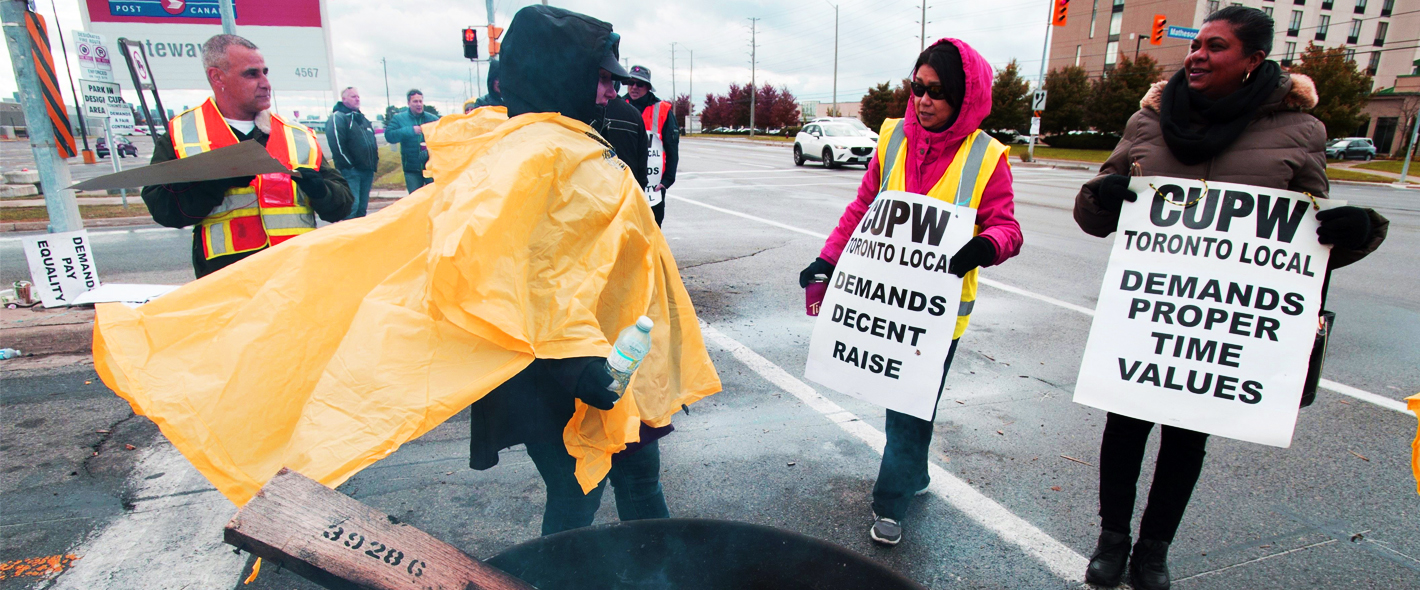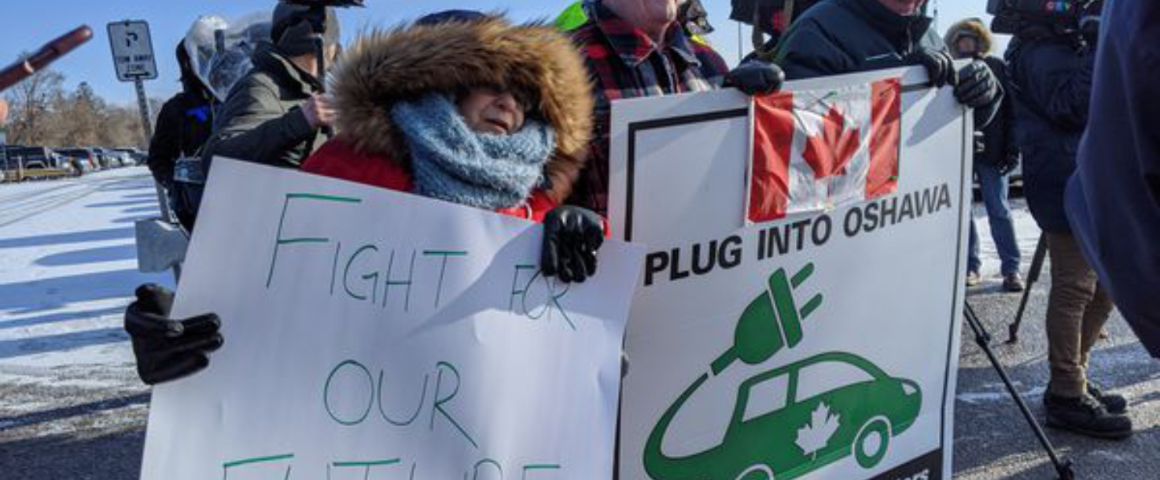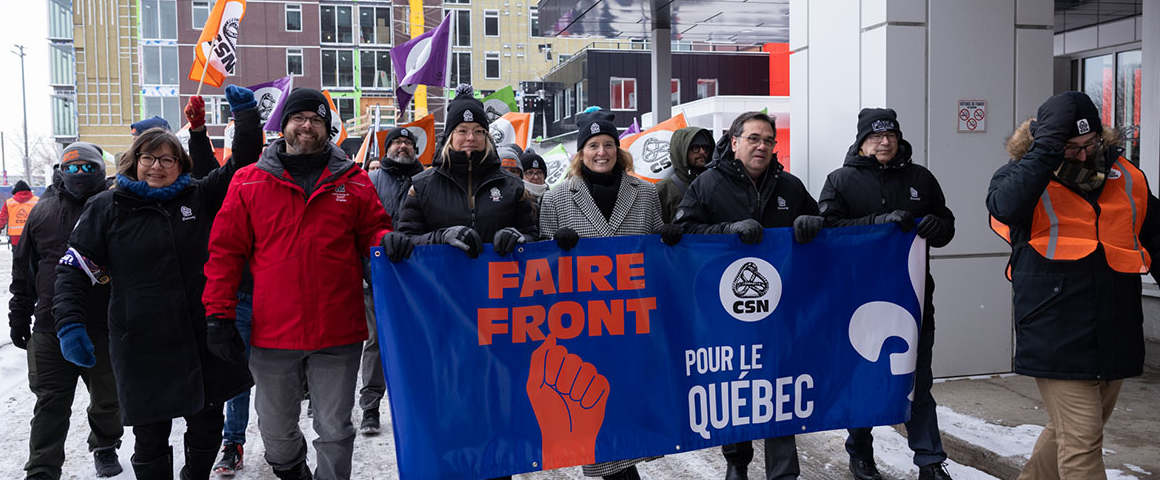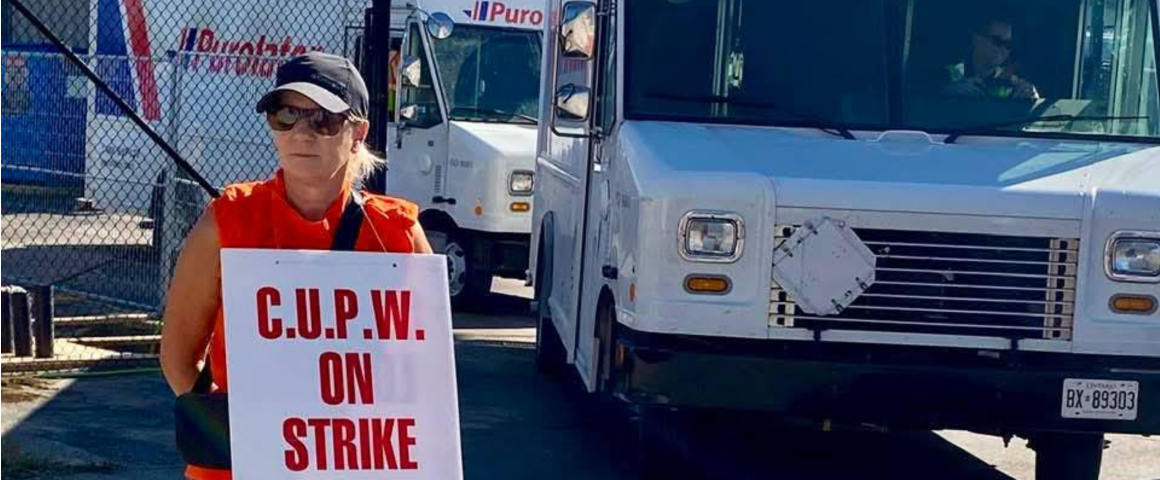At midnight on Monday, October 22, the 55,000 members of the Canadian Union of Postal Workers began a series of rotating strikes to pressure Canada Post Corporation to agree to just collective agreements that serve the best interests of both the urban operations unit members, and the rural and suburban mail carrier workers.
The strike comes after 10 months of bargaining, and after the union received resounding strike mandates for both bargaining unit members.
CUPW National President Mike Palecek told People’s Voice on October 22 that the key issues for the Union are pay equity for rural and suburban mail carriers, and health and safety issues and longer hours for letter carriers, because of the “exponential increase in parcel delivery over the last decade.”
The parties had agreed to implement a review of the pay for rural and suburban mail carriers, who consist of a majority of women workers, but who have been paid 28% less than urban letter carriers, the majority of whom are male. After a year of negotiations, it took an arbitration decision by Arbitrator Maureen Flynn this September to recognize the right of pay equity for the RSMC unit members. Pay equality still needs to be settled at the negotiating table for the new collective agreement, and the Canada Post offer of 1.5% a year does not make pay equality a reality.
Palecek said, “Letter carriers are getting so much more work that means they often have to work into the evening to complete their deliveries.”
He said, “Injuries in the workplace have increased 43% in the last two years. The injury rate is five times the average of other workers in the federal sector.”
The Union wants more job security by creating more full-time jobs, but Canada Post wants to increase the use of precarious workers with less pay and benefits to cover peak periods.
The union and management held non-bargaining meetings with the national leaders of both organizations over the Thanksgiving weekend to clear the air, but this failed to overcome a lack of trust between the parties.
At these meetings the Union declared that the Corporation was not interested in the proposals CUPW made in its Delivering Community Power program, such as Postal Banking, a fleet of electronic postal vans and extending broadband services to rural areas.
After this Oct. 6-8 weekend set of talks both parties tabled global offers but the final offer from Canada Post did not meet the issues of importance to the Union and its membership.
CUPW has succeeded in preventing any concessions in this set of negotiations. Palecek said, “There are no proposals to weaken the pension plan, which was the key issue in the last round of bargaining in 2016.”
The Union is determined to win back the rights its members lost following the back-to-work legislation imposed in 2014 by the Harper Conservative government, including the stripping of their sick leave and wage increases below the cost of living.
Palecek reported to a recent solidarity meeting in Ottawa that the government has said that it will not introduce back-to-work legislation, but the union is prepared for that eventuality. He said, “The government will keep saying that until the day it introduces such legislation.”
Palecek said CUPW has received letters of support from other unions. He was pleased to hear that the Campaign for Public Services has renewed its support for Postal Banking. He said, “We are receiving support from many groups, environmental groups and community organizations because of our campaign for Delivering Community Services.”




